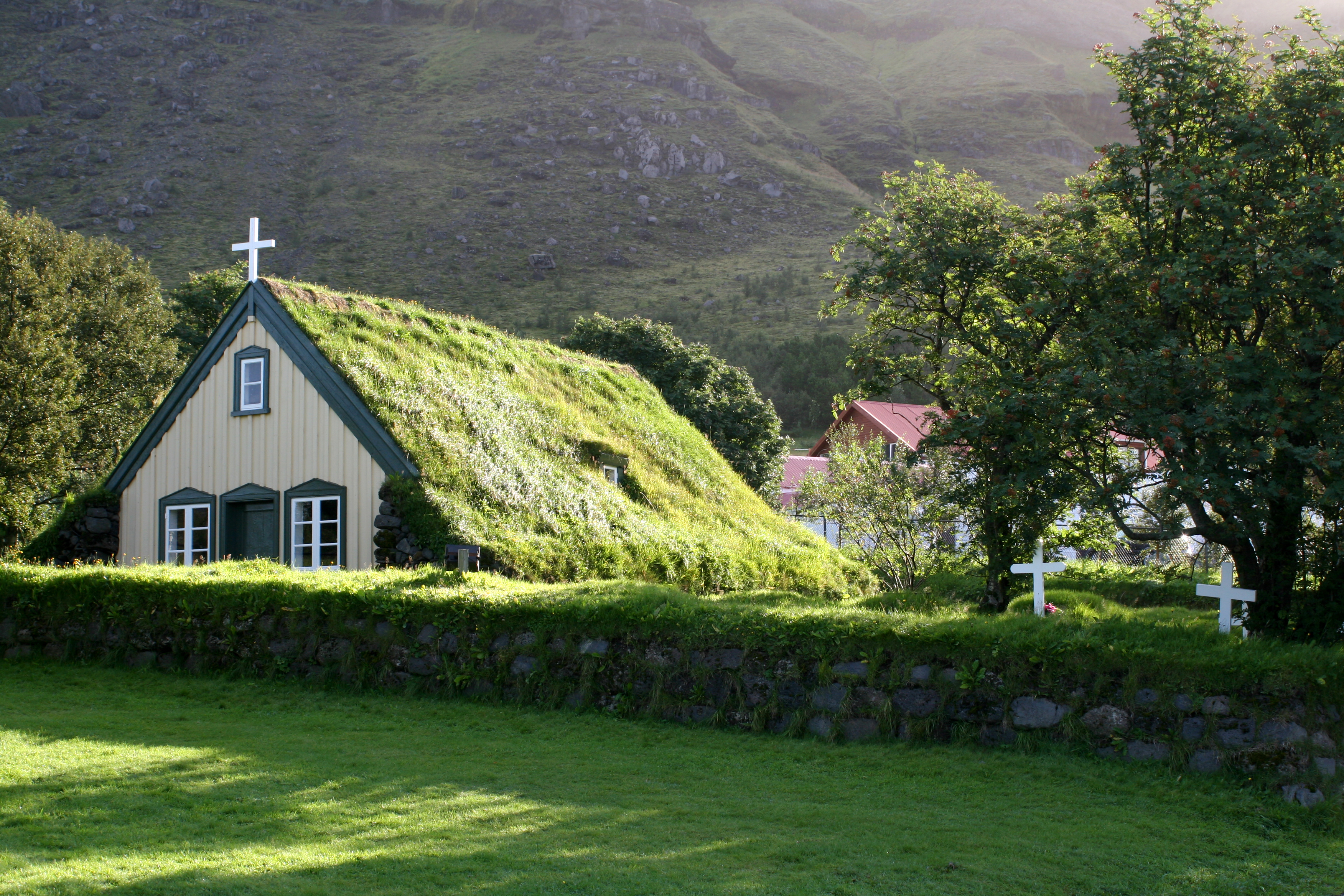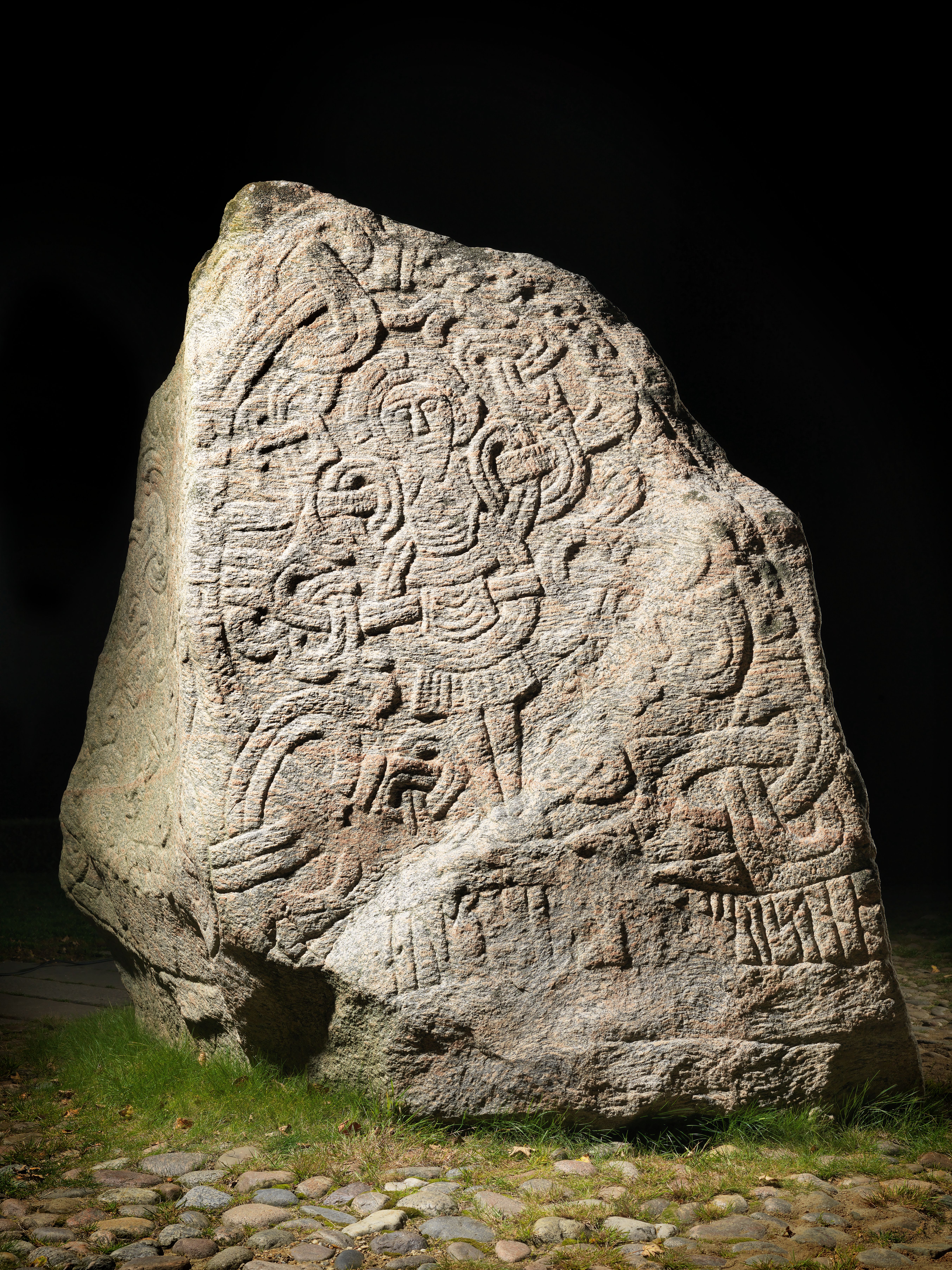|
Religion In Iceland
Religion in Iceland has been predominantly Christianity since its adoption as the state religion by the Althing under the influence of Olaf Tryggvason, the king of Norway, in 999/1000 CE. Until then, in the 9th and 10th centuries, the prevailing religion among the early Icelanders — who were mostly Norwegian settlers fleeing Harald Fairhair's monarchical centralisation in 872–930, with some Swedes and Norse British settlers — was the northern Germanic religion, which persisted for centuries even after the official Christianisation of the state. Starting in the 1530s, Iceland, originally Roman Catholic and under the Danish crown, formally switched to Lutheranism with the Icelandic Reformation, which culminated in 1550. The Lutheran Church of Iceland has since then remained the country's state church. Freedom of religion has been granted to Icelandic citizens since 1874; the Church of Iceland is supported by the government, but all religions officially recognise ... [...More Info...] [...Related Items...] OR: [Wikipedia] [Google] [Baidu] |
Church Of Iceland
The Church of Iceland (), officially the Evangelical Lutheran Church of Iceland (), is the State religion, national church of Iceland. The church is Christian and professes the Lutheranism, Lutheran faith. It is a member of the Lutheran World Federation, the Porvoo Communion, the Communion of Protestant Churches in Europe, and the World Council of Churches. The church is organised as a single diocese headed by the Bishop of Iceland. Agnes M. Sigurðardóttir, appointed in 2012, was the first woman to hold this position. She was succeeded by Guðrún Karls Helgudóttir in 2024. The church has two suffragan Episcopal see, sees, Diocese of Skálholt, Skálholt and List of bishops of Hólar, Hólar, whose bishops are suffragans or assistant bishops to the Bishop of Iceland; unusually, each has a cathedral church despite not being in a separate diocese. History Pre-Christian era and the adoption of Christianity Christianity was present from the beginning of human habitation in ... [...More Info...] [...Related Items...] OR: [Wikipedia] [Google] [Baidu] |
Swedes
Swedes (), or Swedish people, are an ethnic group native to Sweden, who share a common ancestry, Culture of Sweden, culture, History of Sweden, history, and Swedish language, language. They mostly inhabit Sweden and the other Nordic countries, Swedish-speaking population of Finland, in particular, neighboring Finland, where they are an officially recognized minority, with Swedish being one of the official languages of the country, and with a substantial Swedish diaspora, diaspora in other countries, especially the Swedish Americans, United States. Etymology The English term "Swede" has been attested in English since the late 16th century and is of Middle Dutch or Middle Low German origin. In Swedish language, Swedish, the term is ''svensk'', which is from the name of ''svear'' (or Swedes), the people who inhabited Svealand in eastern central Sweden, and were listed as ''Suiones'' in Tacitus' history ''Germania (book), Germania'' from the first century AD. The term is believed ... [...More Info...] [...Related Items...] OR: [Wikipedia] [Google] [Baidu] |
Free Church
A free church is any Christian denomination that is intrinsically separate from government (as opposed to a state church). A free church neither defines government policy, nor accept church theology or policy definitions from the government. A free church also does not seek or receive government endorsements or funding to carry out its work. The term is only relevant in countries with established state churches. Notwithstanding that, the description "free" has no inherent doctrinal or polity overtones. An individual belonging to a free church is known as a free churchperson or, historically, free churchman. In Scandinavia, free churchpersons would include Protestant Christians who are not communicants of the majority national church, such as the Lutheran Church of Sweden. In England, where the Church of England was the established church, other Protestant denominations such as Presbyterians, Congregationalists, Baptists, the Plymouth Brethren, Methodists and Quakers are, acco ... [...More Info...] [...Related Items...] OR: [Wikipedia] [Google] [Baidu] |
Mesopotamian Zuism
Zuism () is an Icelandic group established in the 2010s to be a modern pagan new religious movement based on the Sumerian religion. After registering as a religious group in 2013 with three members, the group experienced significant surge in membership in 2015, under new management, when it announced that the government church funds to the Zuist Church would be reimbursed to every member. At its peak, the Church had around 3000 members. In the late 2010s, the Church underwent a significant decline after facing a number of legal troubles, including being prosecuted for fraud. History The Zuist Church of Iceland was founded in 2010. Zuism became a government-recognised religion in Iceland in 2013 when Icelandic law was amended to allow further non-Christian religions to be registered with the state. The Zuist Church was founded years before, in 2010, by Ólafur Helgi Þorgrímsson, who left it shortly after it became government recognised. The group initially had three members with ... [...More Info...] [...Related Items...] OR: [Wikipedia] [Google] [Baidu] |
Germanic Heathenism
Heathenry, also termed Heathenism, contemporary Germanic Paganism, or Germanic Neopaganism, is a Modern paganism, modern pagan religion. Scholars of religious studies classify it as a new religious movement. Developed in Europe during the early 20th century, its practitioners model it on the Germanic paganism, pre-Christian religions adhered to by the Germanic peoples of the Iron Age Europe, Iron Age and Early Middle Ages. In an attempt to reconstruct these past belief systems, Heathenry uses surviving historical, archaeological, and Germanic folklore, folkloric evidence as a basis, although approaches to this material vary considerably. Heathenry does not have a unified theology but is typically polytheism, polytheistic, centering on a pantheon (religion), pantheon of list of Germanic deities, deities from pre-Christian Germanic Europe. It adopts cosmology, cosmological views from these past societies, including an animism, animistic view of the cosmos in which the natural ... [...More Info...] [...Related Items...] OR: [Wikipedia] [Google] [Baidu] |
University Of Iceland
The University of Iceland ( ) is a public research university in Reykjavík, Iceland, and the country's oldest and largest institution of higher education. Founded in 1911, it has grown steadily from a small civil servants' school to a modern comprehensive university, providing instruction for about 14,000 students in twenty-five faculties. Teaching and research is conducted in social sciences, humanities, law, medicine, natural sciences, engineering and teacher education. It has a campus concentrated around ''Suðurgata'', a street in central Reykjavík, with additional facilities located in nearby areas as well as in the countryside. History The University of Iceland was founded by the on 17 June 1911, uniting three former post-secondary institutions: ''Prestaskólinn'', ''Læknaskólinn'' and ''Lagaskólinn'', which taught theology, medicine and law, respectively. The university originally had only faculties for these three fields, in addition to a faculty of humanities. D ... [...More Info...] [...Related Items...] OR: [Wikipedia] [Google] [Baidu] |
Statistics Iceland
Statistics Iceland () is the main official institute providing statistics on the nation of Iceland. It was created by the Althing in 1913, began operations in 1914 and became an independent government agency under the Prime Minister's Office on 1 January 2008. See also * Minister of Statistics Iceland References External links * * 1914 establishments in Iceland Organizations established in 1914 Iceland Iceland is a Nordic countries, Nordic island country between the Atlantic Ocean, North Atlantic and Arctic Oceans, on the Mid-Atlantic Ridge between North America and Europe. It is culturally and politically linked with Europe and is the regi ... Government agencies of Iceland {{Iceland-stub ... [...More Info...] [...Related Items...] OR: [Wikipedia] [Google] [Baidu] |
Church Tax
A church tax is a tax collected by the state from members of some Christian denominations to provide financial support of churches, such as the salaries of its clergy and to pay the operating cost of the church. It is related to the concept of tithes and offerings. Not all Christian countries have such a tax. In some countries that do, people who are not members of a religious community are exempt from the tax; in others it is always levied, with the payer often entitled to choose who receives it, typically the state or an activity of social interest. The constitution of a number of countries could be and have been interpreted as both supporting and prohibiting the levying of taxes unto churches; prohibiting church tax could separate church and state fiscally, but it could also be favorable treatment by the government. The term "church tax" could mean a tax levied on a religious organisation by a state, or relate to tax exemptions and so on for churches, but this article is ab ... [...More Info...] [...Related Items...] OR: [Wikipedia] [Google] [Baidu] |
Registers Iceland
Registers Iceland () is the main official civil registry for the nation of Iceland Iceland is a Nordic countries, Nordic island country between the Atlantic Ocean, North Atlantic and Arctic Oceans, on the Mid-Atlantic Ridge between North America and Europe. It is culturally and politically linked with Europe and is the regi .... It was formed in 2010 with the merger of Þjóðskrá and Fasteignaskrá Íslands. References External links Official website * Civil registries Government agencies of Iceland {{Iceland-stub ... [...More Info...] [...Related Items...] OR: [Wikipedia] [Google] [Baidu] |
Icelandic Reformation
The Icelandic Reformation () took place in the middle of the 16th century. Iceland was at this time a territory ruled by Denmark-Norway, and Lutheran religious reform was imposed on the Icelanders by King Christian III of Denmark. Resistance to the Icelandic Reformation ended with the execution of Jón Arason, Catholic bishop of Hólar, and his two sons, in 1550. Background Reformation in Denmark-Norway Christian III of Denmark, Christian III became king of Denmark in 1536. That same year, on 30 October 1536, he formally established the Danish Lutheran Church and decreed that his Danish subjects should adopt Lutheranism. He quickly extended religious reform to Norway (1537 in Norway, 1537) and the Faroe Islands (1540), but left Iceland a Catholic country for some time, making no efforts to introduce Protestant reforms in the ensuing years. The Icelandic Catholic Church The Catholic bishops in Iceland at the time were Ögmundur Pálsson of Skálholt and Jón Arason of H� ... [...More Info...] [...Related Items...] OR: [Wikipedia] [Google] [Baidu] |
Monarchy Of Denmark
The monarchy of Denmark is a constitutional institution and a historic office of the Kingdom of Denmark. The Kingdom includes Denmark proper and the autonomous territories of the Faroe Islands and Greenland. The Kingdom of Denmark was already consolidated in the 8th century, whose rulers are consistently referred to in Frankish sources (and in some late Frisian sources) as "kings" (). Under the rule of King Gudfred in 804 the Kingdom may have included all the major provinces of medieval Denmark. The current unified Kingdom of Denmark was founded or re-united by the Viking kings Gorm the Old and Harald Bluetooth in the 10th century. Originally an elective monarchy, it became hereditary only in the 17th century during the reign of Frederick III. A decisive transition to a constitutional monarchy occurred in 1849 with the writing of the first democratic constitution, replacing the vast majority of the old absolutist constitution. The current Royal House is a branch of th ... [...More Info...] [...Related Items...] OR: [Wikipedia] [Google] [Baidu] |







